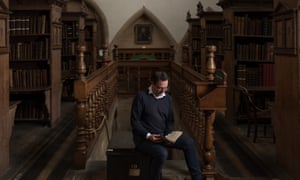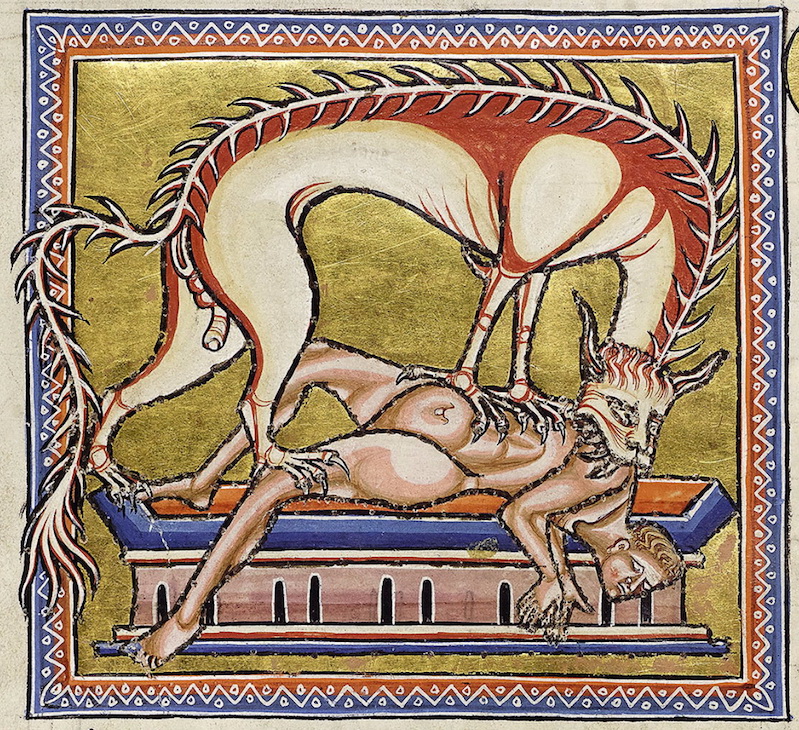via The National Archives blog by Dr Richard Dunley
![Gisela Klein [KV 6/146]](https://blog.nationalarchives.gov.uk/wp-content/uploads/2017/11/KV6-146Klein2-768x852.jpg)
Gisela Klein [KV 6/146]
At the height of the Profumo affair, the greatest British political scandal of the twentieth century, Cyril Machray, a senior figure from MI6, wrote to a compatriot in MI5 sending across a memorandum. He noted that ‘although it is not particularly relevant to the current notorious case, Geoffrey [Hinton ?] thought you might like to have it for your files’. He could not have been more wrong. The memorandum, and the rest of the MI5 file with which it was placed, told the story of Jack Profumo’s relationship with another young model, Gisela Klein, which dated back to the 1930s. The problem was that she was a committed Nazi who worked for German military intelligence. This story, which is revealed for the first time by the files released today at The National Archives, places the entire Profumo Affair in a stark new light. [KV 6/146]
Continue reading
==============================
via Boing Boing by Andrea James

Roman De Giuli created MATEREALITY, his latest in series of abstract films of chemical and physical reactions shot in extreme closeup.
Continue reading
==============================
via Interesting Literature
In this week’s Dispatches from The Secret Library, Dr Oliver Tearle heads off to medieval America and the world of the sagas
Christopher Columbus discovered America in 1492, when he landed on mainland North America, thus sparking the colonisation of the continent by the Europeans.
This is the mainstream conception, and it’s entirely wrong. Columbus never landed on the mainland of the continent we now call North America. Even if he had, he wouldn’t have been the first European to do so. European settlement in North America had first occurred almost half a millennium before Columbus was even born. In around the year 1000, a group of Icelandic explorers made a series of journeys along the northern rim of the Atlantic, and attempted to found a colony somewhere along the Atlantic seaboard of the continent of North America, probably somewhere around what is now Newfoundland and the Gulf of St Lawrence.
Continue reading
==============================
via the New Statesman by Laurence Scott
The obvious idea that we have inner and outer lives is a crucial one for us to keep in our 21st-century sights.
The 1992 film adaptation of EM Forster’s 1910 novel began with a back view. Vanessa Redgrave, playing the mystical Ruth Wilcox, walks in a twilit meadow in the grounds of her house, Howards End. This opening shot was an accident. Director James Ivory and a member of his crew noticed how beautifully the train of Redgrave’s dress moved along the grass, and spontaneously turned the camera on it. Now, BBC One’s rich and absorbing new television adaptation starts with a different (and presumably planned) back view, this time following the brisk step of a postman on his route through the London streets.
Director Hettie Macdonald and screenwriter Kenneth Lonergan’s decision to begin the story with the postman is astute, for although Ruth and her Hertfordshire home are at the core of Forster’s novel, the question of how we communicate with one another is the story’s most urgent concern.
Continue reading
==============================
via the Guardian by Maev Kennedy

The keeper of the muniments, Matthew Payne, holding the manuscript in the Westminster Abbey library. Photograph: Alecsandra Raluca Dragoi for the Guardian
A manuscript of an early work by John Donne, a scurrilous academic joke that could have cost the poet his reputation – and maybe his head – if it had fallen into the wrong hands, has been discovered in a trunk in the archives of Westminster Abbey.
The manuscript may be the earliest surviving copy of what is ostensibly a library catalogue in Latin: the numbered book titles are all invented, and Donne’s list is in fact a string of savage and frequently smutty jokes, many about named contemporary figures.
Continue reading
==============================
via the OUP Blog

Badger photo by Hans Veth. CC0 public domain viaUnsplash.
Badgers are short, stocky mammals that are part of the Mustelidae family. Although badgers are found in Africa, Eurasia, and North America, these animals are possibly best-known from their frequent appearance in literature, such as “Badger” from The Wind in the Willows and Hufflepuff’s house animal in the Harry Potter series, and for being a 2003 internet sensation. But apart from recognizing badgers in books and Youtube videos, what do you know about these animals?Continue reading
==============================
via the Big Think blog by Philip Perry

Credit: Getty Images.
The Clovis people 13,500 years ago meandered across the Beringia—the Bering Strait land-bridge, connecting Siberia to Alaska. It was clean, wasn’t covered in ice, and would have had game to sustain them on their journey. It happened. This isn’t disputed. Clovis artifacts were found throughout North America in the 20th century, mostly mastodon or mammoth kill sites with butchered bones and flint tools, and sometimes even human remains.
These mysterious people who spread quickly throughout the continent get their name from the first discovered site in Clovis, New Mexico which was excavated in 1932. More recent genetic testing has found a link between the Clovis people, modern Native Americans, and Siberian populations. Though they conquered much territory, were they really the first people in the Western hemisphere? The “Clovis-first” theory was the prevailing one for much of the 20th century.
Continue reading
==============================
via Boing Boing by Andrea James

The 12th-century Aberdeen Bestiary has just been digitally scanned and made available online. One of the most famous extant bestiaries, the new version includes newly-discovered details on the book's production.
Continue reading
==============================
via Interesting Literature
A commentary on one of Wordsworth’s ‘Lucy’ poems
‘She Dwelt among the Untrodden Ways’ is one of William Wordsworth’s ‘Lucy’ poems, which he first published in the 1800 reprint of his landmark volume Lyrical Ballads (co-authored with Samuel Taylor Coleridge). In three quatrains, Wordsworth summarises the life, beauty, and death of Lucy, a ‘Maid’ who lived and died among Wordsworth’s beloved Lake District.
Continue reading
==============================
via the Guardian by Felicity Lawrence

Some fracking campaigns have borne fruit. Photograph: Christopher Thomond for the Guardian
Ordinary people increasingly shut out from the means of subsistence; a rich and powerful minority privatising and extracting rent from common resources – it is 800 years this week since the sealing in London’s St Paul’s Cathedral of the Charter of the Forest and these were the grievances it addressed. Its resonances today are so strong that this ancient document from 1217 is providing the inspiration for a new political settlement at events around the country.
The Charter of the Forest, the lesser-known but equally significant twin of Magna Carta, asserted the rights of ordinary people to access from “the commons” the means for a livelihood and shelter, whether it was grazing their livestock, cutting wood for housing and fuel, fishing and hunting, creating water mills, or sharing the other resources of the forest. It restricted the rights of the king and nobles to privatise and exploit the forest while guaranteeing the rights of the commoners. It represented an early constitutional victory for ordinary people over a wealthy elite, and as such was hugely influential in the writing of other constitutions around the world. The battles in England continued of course, and waves of enclosures across Britain through subsequent centuries stripped away many of the rights.
Continue reading
No comments:
Post a Comment